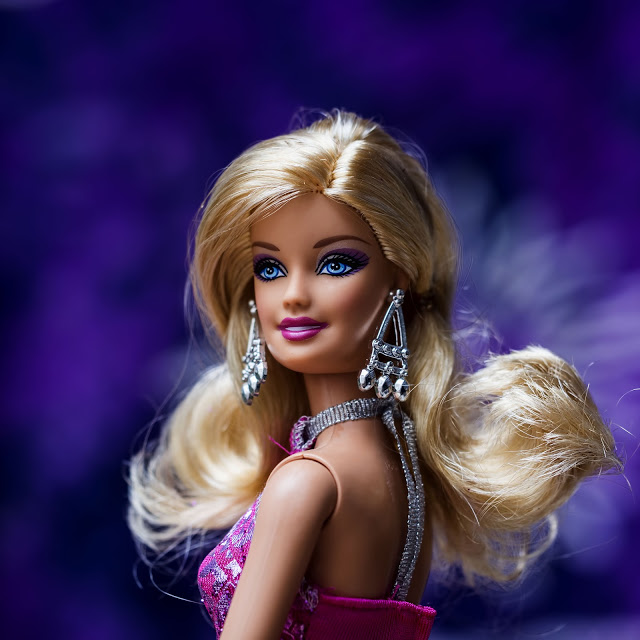Not so long ago, walking down the street would cause me huge amounts of anxiety.
With every step I’d be painfully aware of how I was walking, what I was wearing and who was looking at me. Awareness of how crazy this was just made it worse.
It seemed that the need to be a desirable object had me strongly in its grip. Even now, as a fully grown woman, I still have moments where my appearance from the outside gains this monumental importance.
Am I alone in this? Is it just me?
No, I’m just one of millions of women who have suffered from a lifetime’s worth of being told, “Women are not people, women are objects—so look pretty or no one will love you.”
I think we can be forgiven for falling into this trap when popular culture still screams this from almost every billboard, film and music video.
The use of the female body—which of course is often digitally modified these days—even in these “enlightened” times shows that we haven’t “come a long way baby” at all. Women are still oppressed by objectification—it’s just that the campaign to turn feminism into a dirty word worked, so we don’t talk about it anymore for fear of being oppressed further.
We’ve got hundreds of years of violence and oppression to untangle. A few decades of girl power was never going to be enough. There are whole industries that thrive off this objectification, so let’s face it—we’ve still got some work to do.
Objectification Equals Oppression.
Turning any living creature into an object is an act of oppression. Objectification implies that the living creature has no rights of its own and exists only to be used by other people. By keeping women in this oppressive position, patriarchal systems keep the power of women at bay.
When women and men alike are brought up to believe that a woman’s worth comes from her appearance, then any act of leadership, innovation or creativity is diminished. And if a woman speaks up in the media and is not deemed attractive by society’s standards, then God help her—especially if she says anything against the status quo.
Internalising the Oppressor.
After years of this kind of normalised oppression it’s not uncommon to internalise it in the form of what I described above. Women, like me, start to believe that our only worth is in our appearance and we look at ourselves from the outside rather than as subjects, looking out from the inside.
For some it’s a complete take-over and every living moment is dedicated to creating an object worth desiring by other people’s standards. For me it was a semi-coup and I had managed to hold on to some subjectivity and believe in my worth as a participating subject—although, interestingly, this was usually through “masculine” pursuits.
From Object to Subject.
It was one morning, only about a year ago, that I really noticed that I wasn’t looking through my own eyes. Stopping in my tracks, half dressed, I looked about the room. With my awareness back in my body the contrast was astounding. The anxiety had completely disappeared.
But, most profoundly, I remembered this feeling from a long time ago. I remembered that when I was a little girl I always looked through my own eyes. So when did this change?
Was it when I looked out into the world to see what it meant to be a woman? Did I pick this up from my mum, who grew up in a far more oppressive world than I did? Or did puberty kick in and I subtly picked up the cues that I was expected to experience the sexuality of my body through the desires of men?
Educating Myself.
A few years before this experience I’d come across The Beauty Myth by Naomi Klein and I drank in every page, fascinated and filled with the sensation of finding truth. Since then I’ve come across many other amazing women like Jean Kilbourne, who has done a lecture series called “Killing Us Softly” and Laci Green, who has a great YouTube channel on sexuality.
There are also many men doing work to educate other men and reveal the bars of patriarchy that keep both women and men imprisoned. By going out and educating myself I was able to slowly untangle my mind and become conscious of society’s role in my anxiety, as well as my own.
Owning Myself.
It was just the other day that I realised the oppression of objectification had affected my inner child. The child in my psyche is completely vulnerable to this kind of oppression because ultimately she is always looking for love and acceptance from society and other people.
When I hold myself straighter or wear pretty clothes in child mode, my insecurity shines through like a neon light. However, when I sit up straight or wear pretty clothes as an adult decision to take care of my body, or just to enjoy the fun of dressing up, the energy is completely different.
Our current culture seems to want to keep everybody infantilised—look at the popularity of onesies for example. So, for me, part of becoming a subject is to move out of the child space and into an adult space of responsibility and enjoy my body from the inside.
It’s not easy to break the spell of objectification when the cultural norms of our current time seem to continue to perpetuate it. We’ve come so far as a culture and with each generation we are progressing further towards a paradigm where all people are regarded as intellectual and powerful equals to old white men.
However, when a woman expresses her power and we find ourselves still judging whether her dress is pretty or not, then we still have work to do.
~
Relephant:
Subjectify Me: 5 Ways to Tell if an Image is Objectifying
Author: Suzanne Williams
Assistant Editor: Hilda Carroll / Editor: Travis May
Photo: Pixoto












Read 0 comments and reply